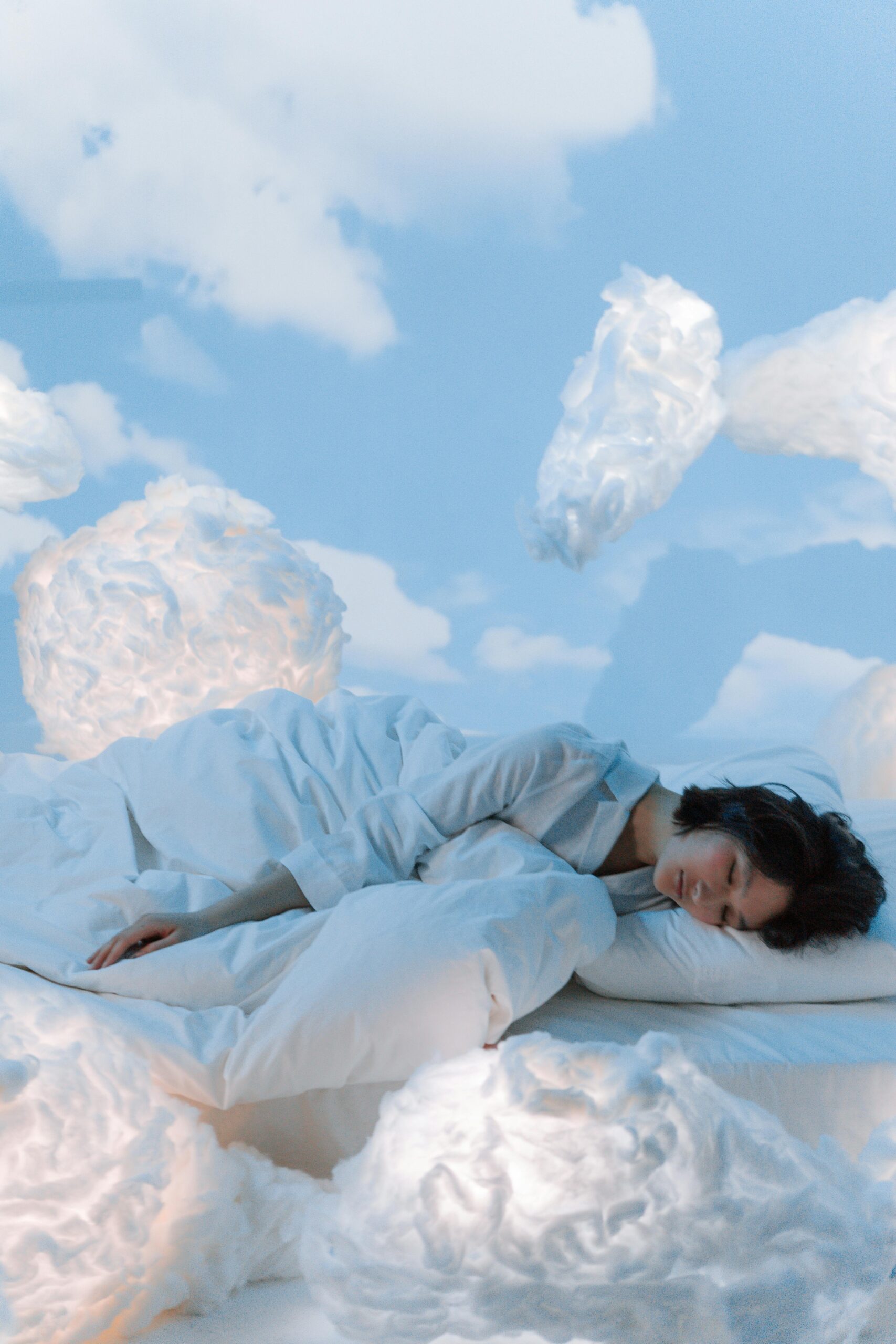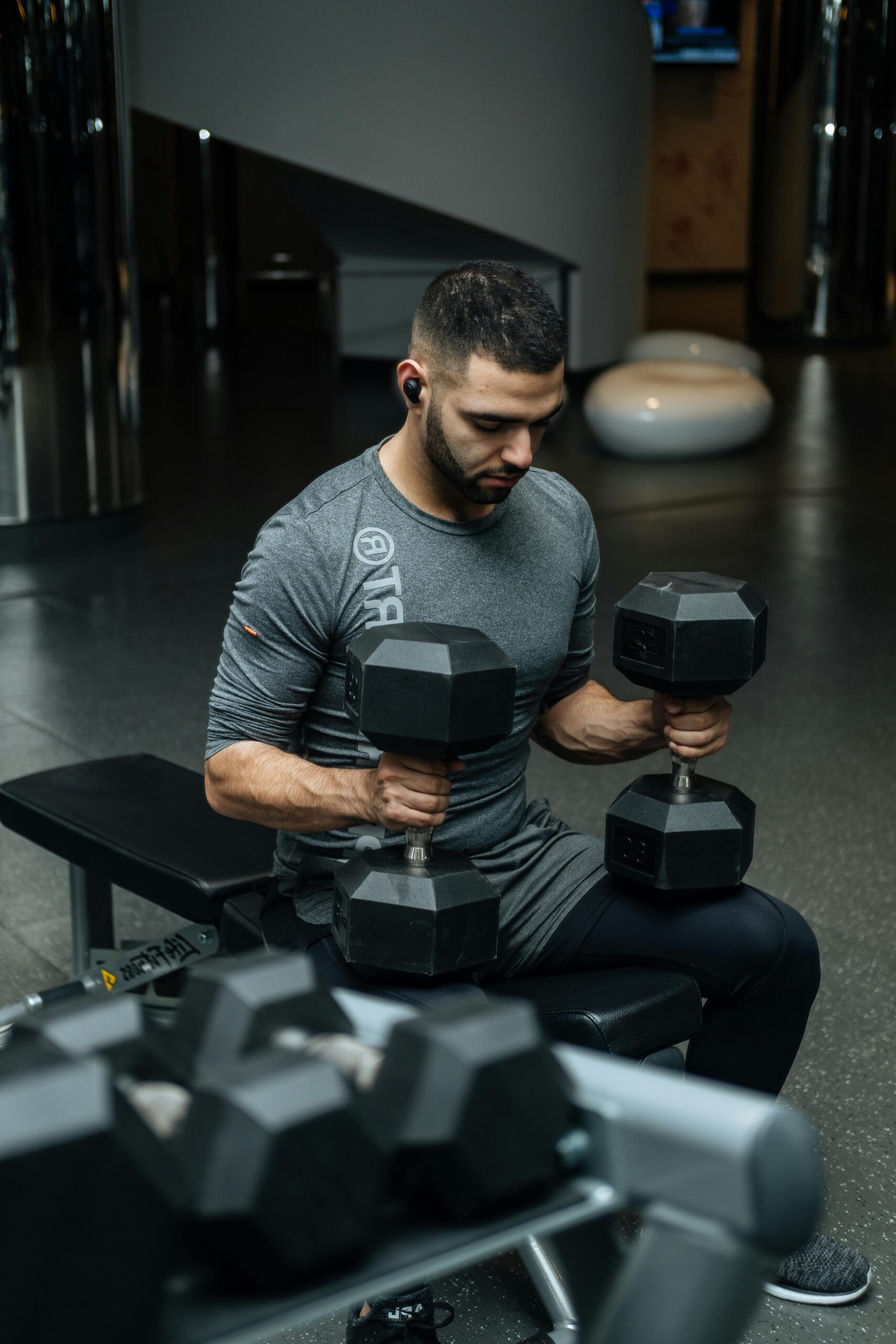Why Do You Have a Headache When You Wake Up Every Morning?
Exploring the Unique Causes of Headaches in Denver and How Chiropractic Care Provides Relief
You may wake up with headaches every morning due to sleep disorders, migraines, other headache disorders, depression and/or anxiety, certain medications, alcohol consumption, poor posture, or bruxism (teeth grinding).
You can stop waking up with a headache by seeking chiropractic care, taking OTC medications, or making specific lifestyle changes, like getting good sleep, avoiding alcohol and drugs, cutting out caffeine, and relieving stress. If a sleep disorder is the culprit, you’ll need to work with one or more healthcare providers to provide specialized care for the underlying cause.
Morning headaches affect 1 in 13 people, according to an article published in The Archives of Internal Medicine. Women and people ages 45-64 are more likely to get chronic morning headaches, but they can happen to anyone.
The most common types of morning headaches are:
- Migraine
- Tension headaches
- Cluster headaches
- Hypnic headache
1. Migraine
2. Sleep Disorders
3. Hypnic Headaches
4. Muscle Tension from Poor Sleep Positions
5. Temporomandibular Joint (TMJ) Disorder
6. Medication
7. Alcohol or Drugs
8. Depression and Anxiety
9. Diet
10. Allergens in the Home
Migraine attacks, with or without head pain, occur most often in the morning. According to the National Headache Foundation, the body produces fewer natural painkillers (endorphins and enkephalins) between 4:00 and 8:00 AM.
Migraine headaches include symptoms such as intense throbbing pain, a stiff neck, anxiety, and even light or sound sensitivity. Pain may be localized on only the right or left side of your head and may last hours or even days. Many consider migraine pain to be the most severe headache (although not everyone experiences head pain during migraine attacks).
Migraines may cause early morning headaches while you’re asleep, causing you to miss the opportunity to take migraine meds to stop the attack before pain occurs.
Some individuals experience an aura (a set of visual symptoms) before or during a migraine attack, such as:
- Bright spots in the vision
- Flashing lights
- Moving lines
- Temporary loss of vision (in severe cases)
If you experience morning headaches with aura, it’s almost certainly a migraine. Migraine attacks may also cause ice pick headache symptoms.
Sleep disorders and headaches go hand in hand — poor sleep quality and a lack of sleep both increase the likelihood of getting a headache when you wake up. Getting a good night’s sleep is not only good for your overall wellness, but it can also prevent morning headaches.
The National Sleep Foundation reports that 60% of adults report having sleep problems multiple nights a week.
A variety of conditions can cause headaches while sleeping. A lack of sleep, low-quality sleep, sleep disorders, and bad sleep position can all lead to morning headaches.
The most common sleep disorders responsible for morning headaches are:


Hypnic headaches, also commonly referred to as “alarm clock headaches,” are a specific type of headache that begins during sleep. They are most common in adults 62 years or older and typically treated with caffeine first thing in the morning.
Dull, spread-out head pain that you feel as soon as you wake up is often associated with hypnic headaches.
Muscle tension is a leading cause of headaches in general, including in the early morning. When your sleep posture is poor, strained or tense muscles may trigger a morning headache.
Tension headaches are the most common type of headache. They are caused by muscle tension, bad posture, and stress. Poor sleep posture and muscle tenseness can both cause tension-type headaches in the morning.
Stress is another cause of muscle tension and tension headaches. Going to bed with stress on your mind may cause head pain when the sun rises.
The temporomandibular joint (TMJ) is the jaw joint. TMJ disorder (TMD) refers to pain in your jaw joint caused by teeth grinding (bruxism) or jaw/head injury.
Headaches are the most common symptom of TMD. TMJ morning headaches occur because of teeth grinding and clenching that you may experience. Also, TMJ morning headaches could be due to poor sleep posture inflaming the TMJ.
Jaw pain from teeth grinding is one reason you may wake up with a headache on top of your head .
Medication overuse headaches (MOH) occur when you overmedicate, causing a headache. You may experience MOH when your body builds tolerance to certain medications.
The American Migraine Foundation outlines MOH diagnostic criteria as “[using painkillers] more than 2 to 3 days per week in a patient with chronic daily headache .”
After stopping the following medications, you might expect morning MOH:
- Acetaminophen (Tylenol)
- Painkillers (Percocet)
- Ergotamine (Ergomar)
- Sumatriptan (Zomig, Imitrex)
- Opiate analgesics, like hydrocodone (Vicodin)
Caffeine is similarly linked to MOH. Caffeine withdrawal can cause headaches because of the way it causes your blood vessels to constrict.


Alcohol consumption and drug abuse increase your risk of a morning headache.
You may have a morning headache due to a hangover. When you drink alcohol the night before, you run the risk of waking up with a hangover headache the morning after.
Drinking alcohol is a migraine trigger. Separate from hangover headaches, drinking alcohol can cause a migraine.
Illegal drugs, such as cocaine and opioids, may bring on headaches. Withdrawal from drugs may also cause head pain, including morning headaches.
Prescription drugs may disrupt your sleep patterns, leading to bad sleep habits and morning headaches.
Mental health concerns, specifically depression and anxiety, are linked to morning headaches. Anxiety and depression can keep you from relaxing and make you worry, leading to migraines.
Waking up with headaches is a common indicator of depression and insomnia.
Anxiety can lead to nighttime teeth grinding or muscle strain, both significant causes of morning headaches. The Journal of the American Medical Association reports that the most significant risk factors for morning headaches are depression and anxiety.
Your diet is a crucial preventive measure against morning headaches. A healthy diet means a lower risk of head pain in the early morning. According to the Cleveland Clinic, 1 in 5 headache patients may be food-sensitive.
The most common dietary triggers for morning headaches are:
- Alcohol
- Chocolate
- Monosodium glutamate (MSG)
- Artificial sweeteners
- Caffeine
- Onions
- Garlic
- Nitrates and nitrites
- Smoked fish
- Cured meats
- Aged cheeses
- Cultured dairy products
- Fasting
Dehydration, caffeine withdrawal, and low blood sugar may all lead to waking up with headaches. Drink plenty of water, avoid caffeine if you have chronic headaches, and monitor your blood sugar levels.
Being obese and being underweight may both be linked to a higher incidence of morning headaches. Poor diet is a contributing factor to obesity.
Migraine sufferers report that missing meals may induce headache pain. Skipping dinner may lead to a migraine that night or in the morning.
Home allergens can trigger waking up with headaches, especially after you’ve been sleeping in the same spot for 8 hours.
Two types of headaches are linked to allergies :
- Sinus headaches
- Migraine headaches
Allergy headaches may be triggered by mold, smoke, pets, certain foods, and so much more.
Black mold exposure will cause headaches if you are allergic to mold. One way to limit mold exposure is to control the humidity in your home and prevent much outside air from getting in.

Rare Causes of Morning Headaches
The following medical conditions are rare causes of morning headaches:
- Brain tumor
- Cervicogenic headache
- Exploding head syndrome
- High blood pressure
- Intracranial hypotension
- Giant cell arteritis
- Musculoskeletal disease
Morning Headache Treatments
You can get rid of morning headaches by identifying the root cause of your headache, then treating the root cause. For example, if your doctor identifies sleep apnea as the root cause of morning headaches, you may consider a treatment plan with CPAP therapy or the DNA oral appliance.
Check out these treatment options and lifestyle changes that may address the possible causes of morning headaches:
- 7-8 hours of high-quality sleep every night
- Relaxation techniques for stress relief
- Massage therapy for muscle tension
- Chiropractic care
- Heat pack for muscle tension
- Cold pack for migraine
- Prescription or over-the-counter pain medication like ibuprofen, though pain relievers may cause side effects if taken too often
- No longer taking certain medicines (seek medical advice before stopping any medication)
- Avoiding alcohol, drugs, caffeine, and unhealthy foods
- CPAP (continuous positive airway pressure) for sleep apnea
- DNA oral appliance for sleep apnea and teeth grinding
- Mouth guards for sleep apnea
Since high-quality sleep is the biggest culprit for morning headaches, try these tips to get better sleep:
- Reduce screen time a few hours before bedtime since blue light exposure tricks your brain into thinking the sun is out.
- Turn the temperature in your bedroom down a couple of degrees.
- Take a hot bath before bed, then sleep under cool sheets. As your body temperature decreases, you naturally want to go to bed.
- Don’t exercise within a few hours of bedtime. Exercising increases your body temperature, making it harder to go to sleep.
- Do not consume caffeine within several hours of bedtime, including coffee, sodas, or chocolate.
- Limit fluid intake within a few hours of bedtime.
- Go to bed and wake up at consistent times.
FAQs
Why do I wake up with a headache and dry mouth?
Morning headaches accompanied by dry mouth are frequently caused by sleep apnea. Most people with obstructive sleep apnea sleep with their mouths open, which causes dry mouth, and get poor-quality sleep, which causes headaches.
Can dehydration cause morning headaches?
Yes, dehydration can cause morning headaches. When you’re dehydrated, your brain literally shrinks , pulling away from the inside of your skull. This shrinking triggers a headache.
Dehydration accompanied by a very hot climate can also cause heat headaches .
Why do I have a headache when I wake up from a nap?
Headaches after a nap may be caused by many of the same reasons for any morning headache, but are most often caused by poor sleep posture, teeth grinding, and dehydration.
When to See a Doctor
See a doctor right away if you experience symptoms of a brain tumor alongside morning headaches, such as seizures, vomiting, or memory problems. If you suffer from headaches every morning, you probably need to see a healthcare professional for diagnosis and treatment. At Denver Upper Cervical Chiropractic, we treat all sorts of headaches with revolutionary orthospinology adjustments. These upper cervical adjustments are gentle, precise, and often effective.
Sources:
- Korabelnikova, E. A., Danilov, A. B., Danilov, A. B., Vorobyeva, Y. D., Latysheva, N. V., & Artemenko, A. R. (2020). Sleep disorders and headache: A review of correlation and mutual influence. Pain and therapy , 9 (2), 411-425. Full text: https://www.ncbi.nlm.nih.gov/pmc/articles/PMC7648824/
- Elizagaray-Garcia, I., Beltran-Alacreu, H., Angulo-Díaz, S., Garrigos-Pedron, M., & Gil-Martinez, A. (2020). Chronic primary headache subjects have greater forward head posture than asymptomatic and episodic primary headache sufferers: Systematic review and meta-analysis. Pain medicine , 21 (10), 2465-2480. Full text: https://www.researchgate.net/profile/Ignacio-Elizagaray-Garcia-2/publication/345144818_Chronic_Primary_Headache_Subjects_Have_Greater_Forward_Head_Posture_than_Asymptomatic_and_Episodic_Primary_Headache_Sufferers_Systematic_Review_and_Meta-analysis/links/61c44cd7c99c4b37eb1878af/Chronic-Primary-Headache-Subjects-Have-Greater-Forward-Head-Posture-than-Asymptomatic-and-Episodic-Primary-Headache-Sufferers-Systematic-Review-and-Meta-analysis.pdf
- Fischer, M. A., & Jan, A. (2019). Medication-overuse headache. Full text: https://www.ncbi.nlm.nih.gov/books/NBK538150/
- Jovel, C. E., & Mejía, F. S. (2017). Caffeine and headache: specific remarks. Neurología (English Edition) , 32 (6), 394-398. Full text: https://www.sciencedirect.com/science/article/pii/S2173580817300858
- Leung, A. (2020). Addressing chronic persistent headaches after MTBI as a neuropathic pain state. The Journal of Headache and Pain , 21 (1), 77. Full text: https://www.ncbi.nlm.nih.gov/pmc/articles/PMC7304149/
- Kaur, A., & Singh, A. (2013). Clinical study of headache in relation to sinusitis and its management. Journal of Medicine and Life , 6 (4), 389. Full text: https://www.ncbi.nlm.nih.gov/pmc/articles/PMC3973877/
- Kikkeri, N. S., & Nagalli, S. (2022). Migraine with aura. In StatPearls [Internet]. StatPearls Publishing. Full text: https://www.ncbi.nlm.nih.gov/books/NBK554611/
- Ruschel, M. A. P., & De Jesus, O. (2023). Migraine headache. In StatPearls [Internet]. StatPearls Publishing. Full text: https://www.ncbi.nlm.nih.gov/books/NBK560787/
- Al Khalili, Y., & Chopra, P. (2020). Hypnic Headache. Full text: https://www.ncbi.nlm.nih.gov/books/NBK557598/
- Arca, K. N., & Halker Singh, R. B. (2019). The hypertensive headache: a review. Current pain and headache reports , 23 , 1-8. Full text: https://www.iranheadache.ir/wp-content/uploads/2020/04/The-Hypertensive-Headache-a-Review.pdf
- Jersey, A. M., & Foster, D. M. (2018). Cerebral aneurysm. Full text: https://www.ncbi.nlm.nih.gov/books/NBK507902/
- Vernon, H., Borody, C., Harris, G., Muir, B., Goldin, J., & Dinulos, M. (2015). A randomized pragmatic clinical trial of chiropractic care for headaches with and without a self-acupressure pillow. Journal of manipulative and physiological therapeutics , 38 (9), 637-643. Abstract: https://pubmed.ncbi.nlm.nih.gov/26548737/
- Al Khalili, Y., Ly, N., & Murphy, P. B. (2018). Cervicogenic headache. Full text: https://www.ncbi.nlm.nih.gov/books/NBK507862/
- Urits, I., Patel, M., Putz, M. E., Monteferrante, N. R., Nguyen, D., An, D., … & Viswanath, O. (2020). Acupuncture and its role in the treatment of migraine headaches. Neurology and therapy , 9 , 375-394. Full text: https://www.ncbi.nlm.nih.gov/pmc/articles/PMC7606388/
- Jimenez, M. P., DeVille, N. V., Elliott, E. G., Schiff, J. E., Wilt, G. E., Hart, J. E., & James, P. (2021). Associations between nature exposure and health: a review of the evidence. International Journal of Environmental Research and Public Health , 18 (9), 4790. Full text: https://www.ncbi.nlm.nih.gov/pmc/articles/PMC8125471/
The post Why Do You Have a Headache When You Wake Up Every Morning? appeared first on Denver Upper Cervical Chiropractic.
© 2026 Denver Upper Cervical Chiropractic

